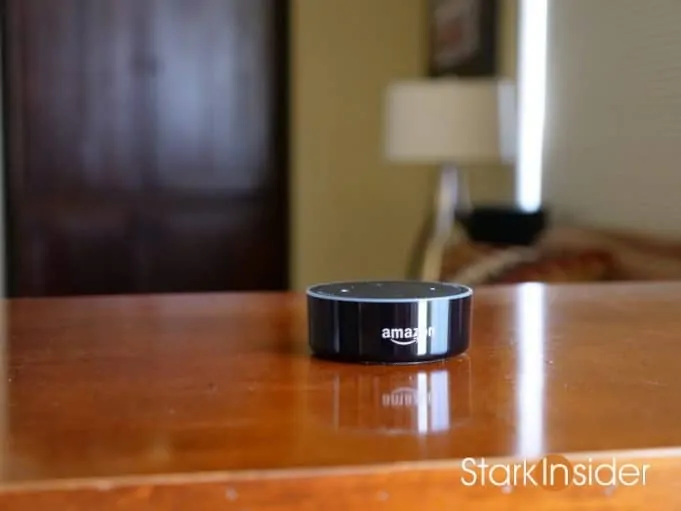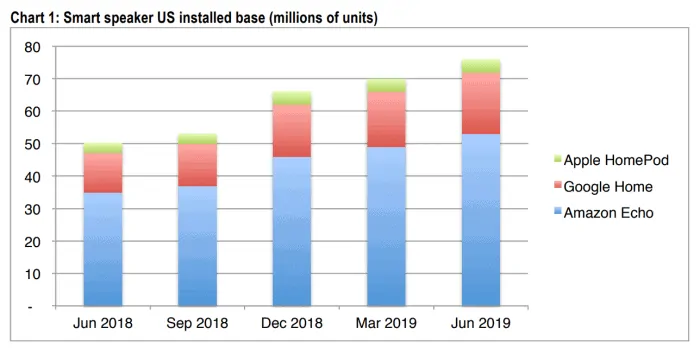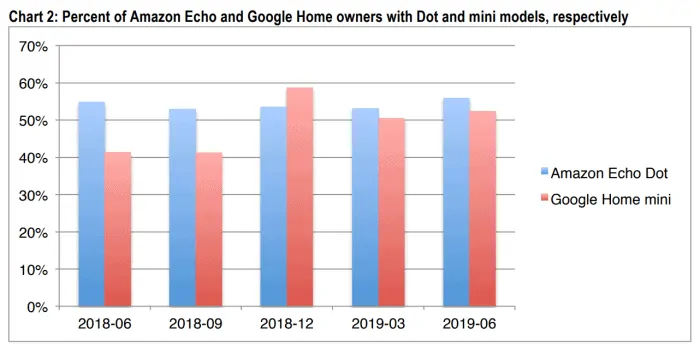Amazon’s early bet on Alexa and smart speakers and assistants continues to payoff.
A new report today shows CEO Jeff Bezos and team with a still commanding lead in the smart speaker market. Consumer Intelligence Research Partners (CIRP) reported smart speaker market share as of June 30, 2019 as follows:
- Amazon Echo 70%
- Google Home 25%
- Apple HomePod 5%
“While the biggest growth in the market for smart speakers is in the holiday fourth quarter, Amazon Echo and Google Home continues to grow their installed bases in the past couple of quarters,” said Josh Lowitz, Partner and Co-Founder of CIRP. “The market grew by 9% in the second quarter, and more than 50% year over year. IncludingApple HomePod, all three major producers have maintained steady shares of the market in the past year. Continued aggressive pricing of the entry-level models seems to continue to encourage new customers to try a smart speaker and existing owners to
consider adding more devices to their home.”
Those that have followed this space for the last few years will likely not find any surprises here. With the first-generation Echo, Amazon raced to an early lead in 2015. Hard to believe it was less than five years ago when we were all collectively amazed that AI could listen to requests and control our homes with a simple voice command. Remember saying “Alexa, turn on the lights” for the first time? A fun story for the grand kids… perhaps.
Interestingly, when it comes to smaller smart speakers the market looks a bit different.
Here you can see share is almost even between Amazon with the Echo Dot and Google with the Mini Home. Apple doesn’t have a play here, focusing solely on the pricey HomePod.
And speaking of Apple I’m a little perplexed at CEO Tim Cook’s strategy in regard to the smart speaker. A small, low-priced speaker is a gateway drug. It has allowed Amazon and Google to gain a foothold in places where an otherwise expensive product might not sell.
Consequently something like the Echo Dot or Home Mini gives Amazon and Google a chance to lock in a customer into their respective ecosystems. If those early customers then decide later to add another device they will more than likely stick with their system of choice — follow-on sales opportunities are significant. Yet, Apple doesn’t apparently feel the need to play that game. Fair enough. Apple is typically a premium-priced product.
However, I can’t help but think Apple ceding early market share to its competitors could be a long-term mistake.




